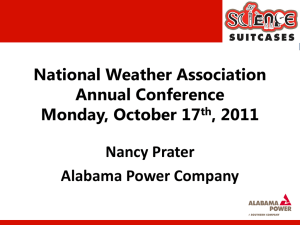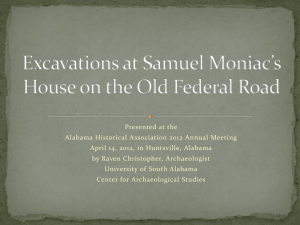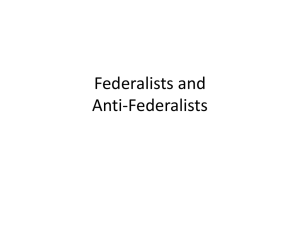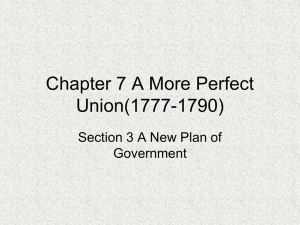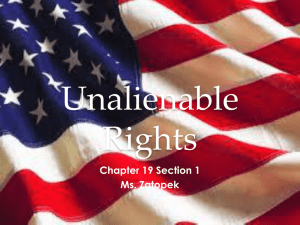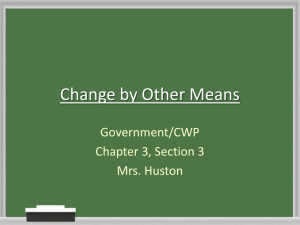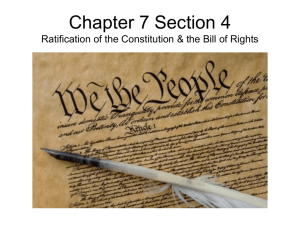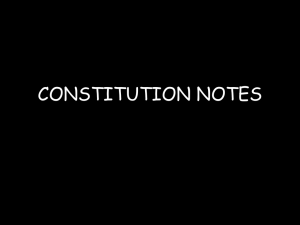Tax Revenue Issues in Alabama for 2015
advertisement
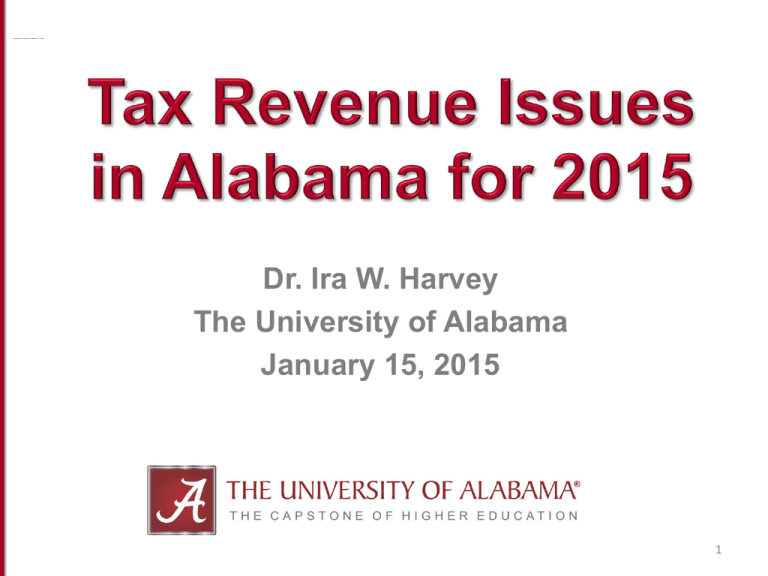
Dr. Ira W. Harvey The University of Alabama January 15, 2015 1 Walt Kelly: The Pogo Papers 2 Walt Kelly: The Pogo Papers 3 The Late Unpleasantness The War of Northern Aggression The Lost Cause The War Between the States 4 • The excesses of taxation, spending, and debt during Reconstruction (Constitution of 1868) created a demand for a new constitution in 1875. • This new constitution would enroll restrictions on taxation and debt that would be carried forward into our present Constitution of 1901. 5 Conservative government returned to the State of Alabama in 1875 with a new constitution. Taxation was limited, expenditures were reduced, and state government attempted to settle the debt that had resulted from the period of Reconstruction. The state had been bankrupt since 1872, and the excesses of Reconstruction paved the way for return of power to the white population. The "Conservative Constitution" of 1875 also provided a modern mandate for Alabama's public school system: “The General Assembly shall establish, organize, and maintain a system of public schools throughout the State, for the equal benefit of the children thereof between the ages of seven and twenty-one years; but separate schools shall be provided for the children of citizens of African descent (Constitution of 1875, Article XIII, Sec. 1).” 6 By placing constitutional limits on taxation of wealth and income in the Constitution of 1901, the revenue problems created for state and local government peaked in 1969. State leaders wanted modern improvements in infrastructure and education. The only path for new revenues was that which was not prohibited by the Constitution of 1901. This path was statutorily implemented by the Legislature. 7 8 9 “I like to pay taxes. With them, I buy civilization.” Oliver Wendell Holmes (1841-1935) 10 11 12 13 Is expanding the tax base and/or increasing the tax rate then applied defined as a tax increase? Is expanding the tax base by removing tax exemptions, credits and abatements defined as a tax increase? 14 • A tax expenditure program is government spending through the tax code. Tax expenditures alter the horizontal and vertical equity of the basic tax system by allowing exemptions, deductions, or credits to select groups or specific activities. This is a cost to state and local government revenues. – In public finance horizontal equity is the idea that people with a similar ability to pay taxes should pay the same or similar amounts. It is related to the concept of tax neutrality or the idea that the tax system should not discriminate between similar things or people, or unduly distort behavior. – Vertical equity usually refers to the idea that people with a greater ability to pay taxes should pay more. If the rich pay more in proportion to their income, this is known as a proportional tax; if they pay an increasing proportion, this is termed a progressive tax. 15 1976 Nobel Prize winning University of Chicago economist Milton Friedman and others 16 17 1. Total state revenues are not increased; therefore some programs would experience reductions. 2. Why was earmarking deemed important when it was implemented? 3. Are there any significant examples of current tax revenue earmarking leading to overfunding of programs? 4. And, Abramson v. Hard 18 Public Education in Alabama is a non-essential function of state government. Deficit spending cannot occur under the provisions of Amendment 26, Constitution of 1901. Appropriations must be reduced pro rata when there is a revenue shortfall. Essential functions must be paid in full; then nonessential functions suffer all shortfall by proration. Education would suffer discriminatory proration as a part of the General Fund (GF). 19 1. “Public” has been removed from our Constitution of 1901 (Amendment 111) 2. Exactly what items of appropriation are included in the published share for Higher Education, K-12, and Other (the split)? 3. Are there reputable national studies which have concluded Alabama spends too much on education? 20 Alabama continues trend, receives F for higher education spending. Birmingham Business Journal, Jan 7, 2015, 7:41am CST 21 1. Does Alabama have a revenue problem? 2. Does Alabama have a spending problem? 3. In accordance with Amendment 26 (Warrant Amendment of 1933), how will the Governor submit and the Legislature approve balanced budgets? (Amendments 212 and 225 and §40-18-15) 4. Should Alabama totally unearmark all revenues? 5. Should Alabama only have a General Fund Budget? 6. How should Alabama evaluate adequacy of program funding for state purposes? 22 Henry Louis Mencken 23

